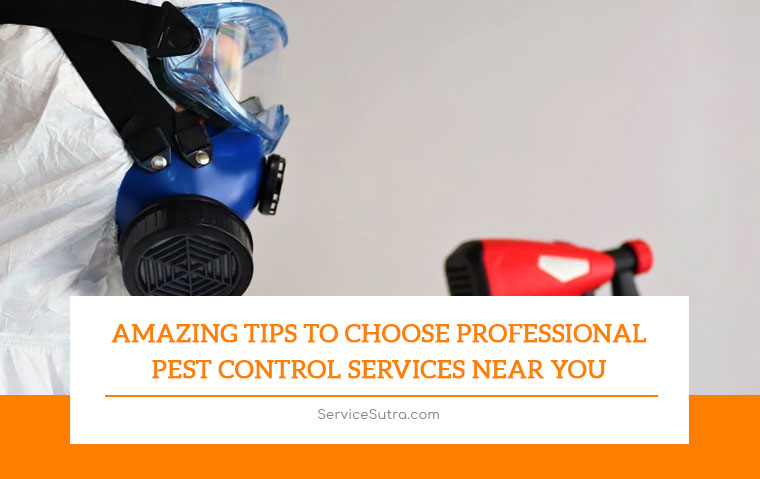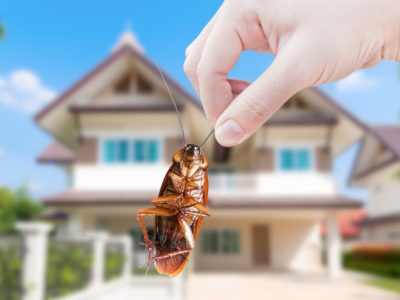Budget-friendly Pest Control Clovis: Solutions Tailored to You
Budget-friendly Pest Control Clovis: Solutions Tailored to You
Blog Article
Recognizing the Various Strategies to Insect Control: A Comprehensive Overview

All-natural Parasite Control Approaches
Utilizing eco-friendly methods such as buddy growing and organic bug control is important for efficiently taking care of pests in farming setups. Companion growing includes expanding various crops in closeness to hinder insects, boost nutrient uptake, and enhance overall plant wellness.
Biological pest control includes introducing all-natural predators or virus to manage pest populations. Ladybugs, as an example, feed upon aphids, regulating their numbers without the requirement for chemical pesticides. Another instance is making use of Bacillus thuringiensis (Bt), a microorganism that targets certain insect pests while being harmless to human beings, animals, and advantageous pests.
These green techniques not just decrease the dependence on artificial pesticides yet also help protect biodiversity and dirt health and wellness. By incorporating natural parasite control approaches into agricultural techniques, farmers can attain sustainable bug monitoring while reducing adverse impacts on the atmosphere.

Chemical Parasite Control Solutions
In addition to all-natural pest control techniques, the use of chemical parasite control solutions plays a significant duty in efficiently taking care of pest populations in farming settings. Chemical parasite control solutions are formulated to target particular insects that may trigger considerable damages to plants. These solutions frequently include synthetic pesticides that are developed to eradicate parasites promptly and efficiently.
Among the crucial benefits of chemical bug control solutions is their performance in regulating pest infestations on a large range. Farmers can apply these options using numerous techniques such as spraying, fumigation, or seed therapy to protect their crops from dangerous pests, weeds, and illness. In addition, chemical insect control remedies are reasonably very easy to apply and can provide quick results, helping farmers secure their yields and minimize economic losses.
Nevertheless, it is necessary to utilize chemical pest control remedies judiciously to reduce prospective adverse impacts on the environment, non-target microorganisms, and human health. Appropriate application techniques, adherence to safety and security guidelines, and normal monitoring are crucial to make sure the liable use of chemical parasite control services in farming practices.
Organic Pest Control Approaches
Organic pest control approaches utilize natural killers or virus to manage bug populaces in farming settings efficiently. This approach supplies a eco-friendly and sustainable solution to pest monitoring, lowering the reliance on artificial chemicals and reducing damage to the setting. One common organic control method is the introduction of all-natural opponents, such as ladybugs or parasitic wasps, to target details pests. These predators eat the parasites, helping to control their populations naturally - pest control clovis.
An additional biological control technique entails using microorganisms like infections, bacteria, or fungis to contaminate and eliminate parasites. On the whole, biological bug control techniques offer a lasting and targeted option to pest monitoring in agriculture.
Integrated Bug Management (IPM)
Integrated Parasite Administration (IPM) is a thorough technique that combines different parasite control techniques to effectively handle and decrease pest populations in agricultural systems. IPM concentrates on long-term avoidance of insects with a mix of organic, social, physical, and chemical control methods. By integrating these different techniques, IPM aims to decrease reliance on chemical pesticides, reduce ecological influence, and advertise sustainable insect administration techniques.
One secret facet of IPM is the usage of organic controls such as natural predators, bloodsuckers, and virus to regulate insect populations. This technique utilizes the power of nature to preserve an equilibrium in between pests and navigate to this website their natural enemies without causing damage to the atmosphere.
Furthermore, IPM entails cultural techniques like try these out plant hygiene, environment, and turning control to produce negative problems for bugs and interrupt their life process. Physical controls such as composts, catches, and barriers are also used to stop insect invasions.
Physical and mechanical Parasite Control Methods
Using non-chemical methods, such as mechanical and physical parasite control strategies, is an essential aspect of extensive insect management approaches, building on the foundation of Integrated Pest Monitoring's alternative method. Mechanical pest control involves using physical obstacles or catches to stop insects from accessing and damaging plants or structures. This approach can include techniques like setting up screens on home windows, utilizing row covers in farming, or utilizing sticky catches to catch insects.
Physical bug control methods, on the various other hand, focus on directly removing bugs through physical ways. Utilizing warmth treatments to get rid of bed bugs or vacuuming up parasites like spiders or ants can be reliable ways to take care of infestations without the use of chemicals. By including these mechanical and physical bug control techniques into an Integrated Parasite Management plan, specialists and people can decrease dependence on chemicals while still efficiently lessening and taking care of pest populaces damages.
Conclusion

In enhancement to all-natural pest control techniques, the use of chemical parasite control solutions plays a find out substantial duty in successfully managing pest populations in farming atmospheres.One of the essential advantages of chemical bug control services is their effectiveness in managing pest problems on a big range.Integrated Insect Monitoring (IPM) is a detailed technique that incorporates different parasite control methods to efficiently take care of and reduce pest populaces in agricultural systems.Using non-chemical approaches, such as physical and mechanical pest control methods, is an essential element of comprehensive insect monitoring techniques, developing upon the structure of Integrated Insect Monitoring's holistic method. By including these mechanical and physical insect control strategies into an Integrated Parasite Administration strategy, people and experts can lower reliance on pesticides while still successfully handling pest populaces and reducing damages.
Report this page